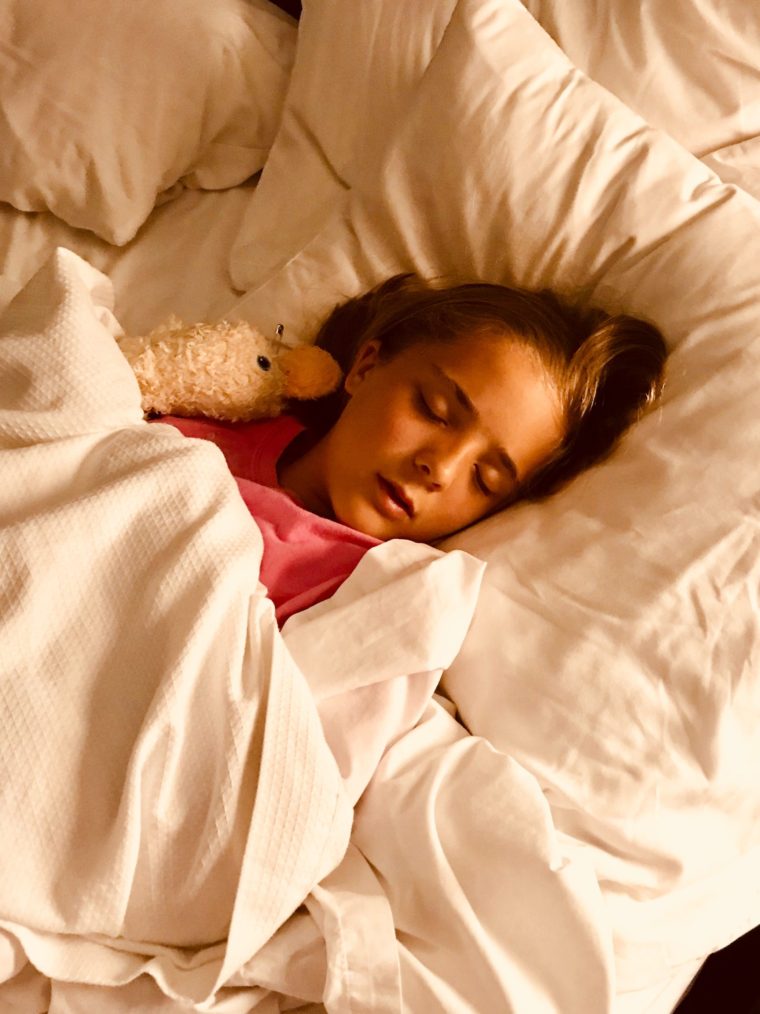The mechanisms underlying the intimate connection between sleep and learning are becoming increasingly clear.

Here are 5 more actions you can take to ensure your child has a good night’s sleep.
- Relaxation Before Bedtime
- Encourage your child to relax before going to bed. You can facilitate that with deep breathing exercises, reading a book, or listening to gentle music.
- For napping children, keep the naps early and short
- Most children between 3 – 5 years stop napping, but if yours still do, keep the nap to 20 minutes or less, no later than early afternoon.
- Check the noise level and light intensity in your child’s bedroom
- Blue light from televisions, computer screens, phones, and tablets suppresses melatonin levels in the brain and delays sleepiness.
- Bright light in the hour before bedtime can have the same effect on young children.
- Pay attention to what and how much your child eats
- The evening meal should be satisfying and eaten at a reasonable time.
- If your child feels hungry or too full at bedtime, she will be more alert or uncomfortable than is optimal for sleep.
- This will make it more difficult to fall asleep.
- Avoid caffeine
- Caffeine is in energy drinks, tea, chocolate, and cola. Tell your child about its deterring effect on sleep and do not offer any of them in the late afternoon or evening.
- In addition to caffeine, chocolate contains theobromine – a naturally occurring substance that stimulates the central nervous system.
Keep in mind that children who do not get enough sleep tend to have more academic problems, as well as behavioral challenges at school…and at home.
So, if your child is having problems with memory, concentration, attention, or behavior, a good place to start looking for solutions is her sleep habits.
Have you had to deal with an uncooperative child, then later found out she was sleep deprived?

What great suggestions for getting a kid calm enough to sleep. It would help them be more open to learning because an awake mind is an active mind. These suggestions would work on adults, too, I would think. Seems like helpful hints in dealing with insomnia. By the way, I’m kind of backwards. Caffeine puts me to sleep. If I drink a cup of caffeinated tea, I tend to feel sluggish and ready for a nice, relaxing nap.
You’re right, Alice. Tips for helping children sleep better work for adults too. Regarding caffeine, there are exceptions to every rule. Seems like you’re the exception here, my friend. 😁
Great info Florence. Sleep is so critical to all of us on so many levels. I really hate it when I hear people say “I’ll sleep when I’m dead”…. well, that day will surely come faster without sleep to recharge and renew. And of course, children need it to support their growing minds and bodies.
Yes, Pamela, sleep is very important for all of us, but it is critical for our children, in many ways.